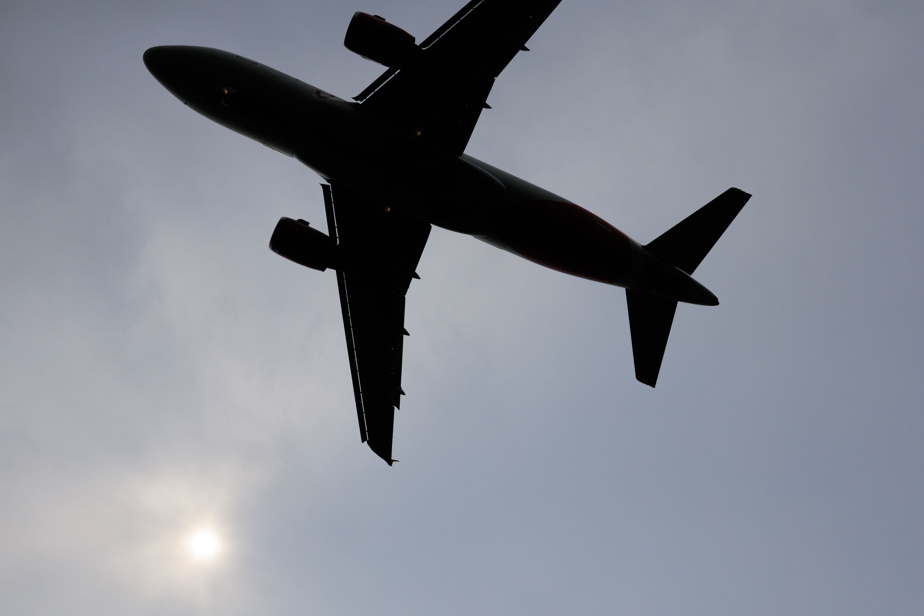
Major Canadian airlines are asking some of their passengers to sign non-disclosure agreements if they want to get their money, seeking compensation for delays or cancellations.
Passengers who file lawsuits after major flight delays or cancellations are often awarded money. However, there is a catch to this goodwill gesture: the passenger must sign a confidentiality agreement and waive his claim.
The Canadian Press contacted more than 20 Canadian airline customers who had to endure the situation. Some rejected the offer, others accepted. The highest amount seems to be one thousand dollars.
For example, Coleen Dafoe is scheduled to travel to the Dominican Republic with her husband and daughter to celebrate her 50th in December 2022.e anniversary, but the flight was canceled by WestJet.
The company offered to leave no more than 10 days after the couple’s vacation dates, she said. Mme Dafoe instead sued WestJet in small claims court. A company lawyer offered them a full refund of the tickets on one condition: signing a non-disclosure agreement.
“My husband and I procrastinated. A part of us wanted to stand our ground and reject this confidentiality clause because airlines shouldn’t silence people when they don’t follow the rules,” said M.me Dafoe.
However, the couple agreed to a settlement that prohibits them from disclosing the amount they received.
WestJet said it “does not comment publicly on non-disclosure agreements, regardless of the reason or circumstances.”
His case appears to be part of a pattern implemented by two major Canadian airlines, WetJet and Air Canada, which initially offered vouchers of up to $150 and $300 to customers who complained. If they reject the offer and go to court, the companies may agree to reimburse them in full or even offer them more money if a non-disclosure clause is added to the contract.
Air Canada notes that these confidentiality clauses are common in dispute resolution. It says that compensation will be paid only when the client is entitled to it.
“These terms are designed to protect the integrity of the negotiation process because every case is different. We cannot directly compare the terms to one another,” company spokesman Peter Fitzpatrick wrote in an email.
Consumer rights advocates reject the idea that a non-disclosure agreement is common.
According to Sylvie de Bellefeuille, budget and legal advisor at Option Consumers, airlines want to quell negative reactions, mainly on the Internet and in court.
“They don’t want to set precedents. They don’t want to read on social media that someone made a $500 deal with Air Canada,” she said.
Sometimes the settlements are lower than the amounts claimed. John Lawford, executive director of the Public Interest Advocacy Center, says many clients don’t know they can refuse the first offer.
“These strong companies use great means,” he laments. It’s scandalous, it’s petty, it’s bad sport. However, the sums involved are not large. They want to silence the critics. Silence is imposed on airlines that may present other issues. »
Gabor Lukács, president of Travelers Rights, agreed that from a strictly business perspective, airlines are acting reasonably under the current rules. He stressed that these clauses would prevent proliferation of cases before the courts.
“From an economic point of view, they are making the right choice. Airlines are neither good nor bad. They are choosing the right tactics in a loaded dice game against passengers. »
According to the Air Passenger Protection Regulations, in the event of flight cancellation or extended delay due to the airline’s wishes, airlines must offer a refund or rebooking to the passenger, at the passenger’s option.
As of Dec. 5, nearly 61,000 complaints were pending before the Canadian Transportation Agency, which oversees the program. Many passengers prefer to avoid this process – which only happens after the airline has rejected the complaint – because the wait can, in some cases, reach two years.
To speed up the process and persuade travelers to deal with regulatory authorities rather than courts, the agency created “grievance redressal officer” positions. About fifty people were appointed. Their training began in mid-August. The office plans to hire another 50 people next year.




